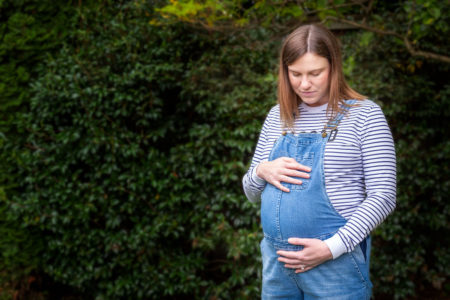When Samantha’s* brother stopped coming home she felt a mixture of relief that her family could be normal again and guilt that she hoped he would never be found.
“I felt guilty about that for a long time. I actually tried to convince myself that Rob had gone to live with our dad interstate,” Samantha said.
“Now I can see that, as a teenager, all I wanted was not to be different, I wanted a normal life.”
A number of years earlier, Samantha and her family had moved to a regional town in central Victoria after her parents’ marriage broke up.
“My brother Rob* was just a normal country kid; he played footy, wagged school and wanted to join the police force,” Samantha said.
“When he was about 16 he started to change. He withdrew from the family, but I think Mum thought that was a normal part of growing up.
“Then he stopped hanging out with his friends. He stopped playing footy and spent a lot of time in his room. He even stopped eating with us and refused to come to family events.”
As time went on, Rob’s family realised they were dealing with more than teenage angst, and turned to their local GP for advice.
He recommended a psychological evaluation.
“Mum thought there was no way Rob would agree to go, but he did. I think he was relieved that at last whatever was wrong with him would be ‘fixed’,” Samantha said.
To get the evaluation, the family needed to take Rob to a neighbouring city, an hour’s drive from the family’s home.
In this respect Rob’s family were relatively fortunate because in many regional areas, GP clinics and local hospitals are the only places offering services for people experiencing mental health issues.
A recent study by the National Rural Health Alliance found there were four psychiatrists for every 100,000 people in regional areas.
In major cities, the ratio is 13 psychiatrists for every 100,000.
In June this year, the Victorian Council of Social Services provided a submission to a Senate inquiry into the accessibility and quality of mental health services in rural and remote Australia.
The report stated that although Victorians living in rural areas experienced mental health issues at a similar rate to people living in the city, they were much less likely to access support.
Mental health care professionals have told VCOSS it is not uncommon for people experiencing mental stress and expressing suicidal thoughts to be turned away from their local hospital.
Family members dealing with a loved one say that often their only option is to call the police.
Those who are admitted to hospital are often discharged without social support or community care. Some patients in rural areas don’t even have access to transport back to their homes.
Of those who do receive support, the services are often provided by professionals with less training than their city counterparts.
Michelle MacGillivray is the program manager of Lifeline Ballarat and takes calls from people in crisis throughout Australia.
The advice Michelle gives will depend on the location of the caller.
“Dealing with somebody who is on an isolated farm is a very different situation from somebody who is calling from Perth or Melbourne,” Michelle said.
“It is much more challenging working with people seeking help from rural areas because there is a lack of on-the-ground services.
“Even when you have located those services you have the added factors like transport. In many rural areas there is no public transport. So, while the service they want to access might only be 20 minutes away, getting there is a real problem.”
This shortage of services means that not only do people in regional and rural areas wait longer to access services, professionals often charge higher fees, so shutting out people on lower incomes.
Government moves to help rural areas cope with the stress of the ongoing drought have highlighted the need for mental health services throughout regional Australia.
While health professionals have welcomed funding to address the immediate need of those impacted by the drought, such short-term funding will have little impact on day-to-day service provision in rural communities.
This is particularly true in Victoria which, according to professionals, lags behind other states in mental health funding despite a boost in the last state budget.
Mental Health Victoria, a not-for-profit peak body representing mental health services, has stated that Victorian mental health services have been “chronically underfunded for more than a decade”.
“Access to specialist mental health services in this state sits at 39 per cent under the national average, and the number of beds is well below the average of comparable states,” a spokeperson for MHV said.
“Over the past four years, the number of emergency department mental health admissions has jumped by 19 per cent to more than 52,000 per year – that is one admission every 10 minutes – with an increasing burden being carried by police and ambulance services.”
Many experts say that increased funding alone isn’t enough; it is imperative that money is targeted where it is needed most.
Professor Graham Meadows, senior research fellow Joanne Enticott, and Sebastian Rosenberg from the ANU argued in an article published by The Conversation in June that while spending in mental health might have increased, it isn’t reaching the people most in need.
Using data obtained through Medicare rebates, the authors found that funding allocation has a major impact on mental health in rural areas.
“Overall, living in regional and remote Australia doesn’t seem to mean you’re more likely to have clinical anxiety or depression.
“But you are much less likely to get to consult with a clinical psychologist to help you with the condition if you live in a regional or remote area,” they wrote.
MHV chair Damian Ferrie said that while the Victorian government’s investment in hospital beds and emergency crisis hubs was important, more thought should be given to prevention.
“Further investment is needed not only in bricks and mortar, but in services delivered in the community to prevent people getting into crisis. These services are inexpensive and are proven to reduce hospital admission rates,” he said.
Increased funding also doesn’t necessarily address some of the problems of attracting well-trained health professionals to rural communities.
These issues include limited opportunities for professional development and support as well as family concerns, such as access to high quality education for children, spousal employment and housing.
In the case of Samantha’s brother Rob, as a vulnerable 16-year-old he found it difficult to establish trust with health professionals because of the large turnover in staff.
“Mum said that sometimes there would be a new person each time she took him, and the whole time they were trying new medications and trying to work out what would work for him,” Samantha said
“Sometimes they would even give a completely different diagnosis of his illness. Drugs that work on one person might have a totally different effect on another person, and just giving medication without counselling and proper support can actually make things worse.”
After about a year Rob refused to travel with his mother to his appointments.
He had stopped attending school and spent more time away from his family, either in his room or out of the house for days at a time.
“The first few times he didn’t come home, Mum rang around all of his friends from school, but most of them hadn’t seen him in months,” Samantha said.
“One time she rang the police who found him and brought him back.
“He was so angry, I remember him screaming and punching a hole through his bedroom door. My little sister and I hid in the bathroom, listening to hear whether he had hurt Mum.”
Over the next few years, Samantha said her family came to fear Rob.
He would alternate between spending days on end in his room, or days away from home, often returning angry. The outbursts became more common, with holes punched in walls and windows broken.
He was drinking heavily and began using drugs, issues which made it more difficult for the family to find support for him.
The VCOSS report to the Senate inquiry found that although mental health issues often go hand-in-hand with alcohol and other drug abuse many organisations will not treat substance addiction if the person has a diagnosed mental health condition, and vice versa.
“Mum tried everything to get help for Rob, but most of the services were over an hour away, and there was no way she could force Rob to get in the car, never mind attending counselling,” Samantha said.
“In the end she bought an old caravan and Rob lived in the backyard for a while.”
Samantha’s experience highlights the ripple effect mental health can have on others.
“I never brought friends home to my house,” she said.
“I remember feeling bad that I would always go to sleepovers with friends but never invited them to mine.”
Being in a small community meant the family were aware that others probably knew what was happening, but people didn’t want to interfere.
Samantha said the contrast with the support given to a local family whose mother was diagnosed with cancer highlighted the stigma associated with mental illness.
“People probably thought they were doing the right thing by not saying anything, but perhaps things would have been different if someone had offered support or even someone to talk to,” she said.
“It’s very complicated, even though Mum was looking for help, in lots of ways I think she was trying to keep what was happening hidden.”
Samantha said the four-year age gap between her and her brother meant they were not really close.
As a teenager she only knew him as a ‘trouble-maker’ who caused heartache for their mother and, as his behaviour became more erratic, she began to fear him.
It is only with the benefit of hindsight that she can blame the illness, not the person.
“The more I learn about mental illness, the more I realise how devastating it is for the person experiencing it,” she said.
“I think Rob really thought that once he asked for help he would be ‘cured’ and feel normal again. When that didn’t happen, it must have been awful for him.”
Samantha hasn’t seen her brother for nearly 10 years.
Throughout that time he has contacted his parents asking for money, and a few years ago he was arrested and jailed for breaking and entering.
When reports of homeless people are on the news Samantha knows her mum studies the faces, still looking for her son.
“My experience with my brother has led me to wanting to work in mental health, particularly with those close to the person,” Samantha said.
“After what we have been through as a family, I know how important community support is, not just for the person with the illness, but for those who love them.”
*Names have been changed




